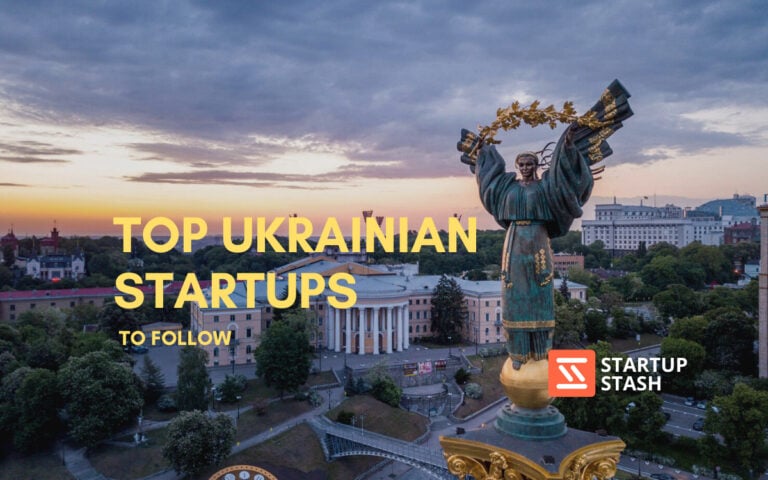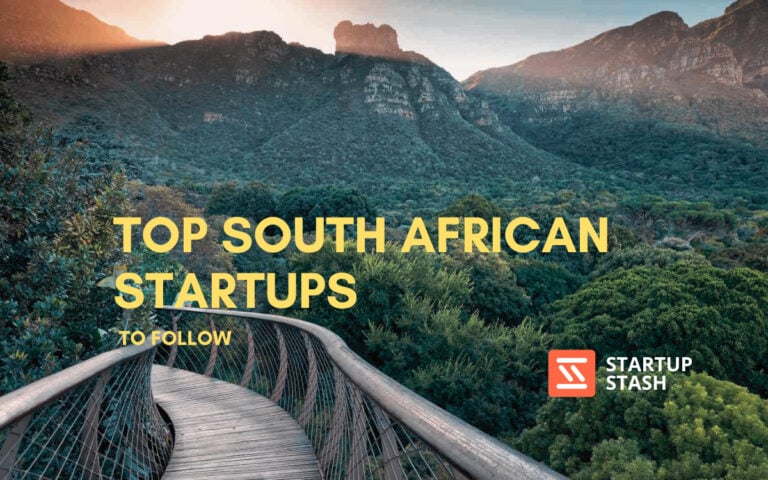With its vast geographical expanse and rich history, Russia is emerging as a global startup ecosystem powerhouse. The country's powerful educational system, particularly in science and technology, has laid a solid foundation for innovation and entrepreneurship. Significant cities like Moscow and St. Petersburg are becoming hotbeds for startups, with over 40% of startups in that region. The Russian government has also launched several initiatives to foster a more conducive environment for startups to diversify the economy beyond its traditional reliance on natural resources.
Investment in Russian startups has been on the rise, with significant backing from both domestic and international venture capital firms. In 2023, the total investment in the startup sector reached approximately $1.5 billion, reflecting increased confidence in the market's potential. Top startups in Russia are making waves in various industries, including fintech, IT, and biotechnology. The government has also been proactive in providing grants and tax incentives to encourage innovation and reduce the financial burden on emerging companies.
Many Russian startups are expanding their operations globally, leveraging the country's strategic location and technical expertise. The proportion of startups with international founders has steadily increased, and many of these ventures are gaining traction in foreign markets. This international focus is helping Russian startups to scale rapidly and compete on the global stage, showcasing the country's potential as a significant player in the global startup community.
1. MTS AI
Year Founded: 2017
HQ: Basmanny District, Moscow City
Size: 200+
Founders: Alexander Khanin

MTS AI is a Russian startup focusing on developing advanced solutions in natural language processing, speech synthesis, and computer vision. It offers a range of digital transformation and business automation products tailored for various industries, including manufacturing, transport, retail, and agriculture. MTS's AI initiatives are part of a broader effort by the company to integrate advanced technologies such as telecoms, fintech, cloud technology, and Big Data into their business operations.
MTS AI leverages the most powerful supercomputer among all telecom providers, using cutting-edge technologies like neural networks, microservice architecture, and high-load systems. This robust infrastructure, combined with access to vast amounts of user data, enables MTS AI to deliver innovative and efficient AI solutions. In 2023, it received an undisclosed amount of funding from one investor to advance its technologies.
2. ENGY Health
Year Founded: 2019
HQ: Москва, 105005, Russia
Size: 1-50
Founders: NA

Engy Health is one of the Russian startups specializing in analyzing heart rate variability (HRV) to monitor and improve health. Its platform connects to heart rate monitors, providing users with detailed insights into their energy levels, stress, and overall well-being. Engy Health offers personalized recommendations to help users prevent health issues, optimize physical activity, and manage stress more effectively.
Engy Health collaborates with the Russian State Research Centre of Biomedical Problems and NASA's Human Research Program to ensure its methodologies' high accuracy and scientific validation. It aims to empower users with actionable health insights to improve their quality of life through precise and personalized health monitoring. Engy Health has secured $600K in funding in 2024, which will help it reach a larger user base.
3. Zyfra
Year Founded: 2017
HQ: Moscow
Size: 200+
Founders: Igor Bogachev

Zyfra is among the Russian startups focused on improving the efficiency and safety of various heavy industries such as mining, oil and gas, chemicals, and engineering. Zyfra allows industries to leverage the power of the Industrial Internet of Things (IIoT) and Artificial Intelligence (AI) by developing and implementing advanced industrial digital solutions based on its proprietary platform, ZIIoT. Its technologies are designed to optimize production processes and ensure operational safety.
Zyfra's innovative solutions are employed across 474 industrial plants globally, including regions such as Europe, Southeast Asia, Africa, Latin America, and the CIS countries. Its flagship products include Zyfra MDCplus, an industrial machine monitoring and production data collection system, and Zyfra OpenMine, a mine fleet management system for open-pit mining.
Zyfra offers solutions like Zyfra Precision Drill and Geonaft, which streamline operations in mining and upstream oil and gas industries. It has managed to secure RUB 990 million($10.89 million) to expand its approach with its most recent Series B round led by VEB Ventures in January 2021.
4. Broniboy
Year Founded: 2017
HQ: Krasnodar, Krasnodarskiy kray
Size: 51-200
Founders: Ivan Trufanov

Broniboy operates a food delivery service that has quickly gained traction in the competitive market, directly challenging established players like Delivery Club and Yandex.Food. It focuses on serving smaller cities and regions that larger competitors often overlook. Broniboy can offer faster, more reliable service tailored to local preferences and needs by prioritizing these underserved markets. This localized strategy allows Broniboy to build strong relationships with local restaurants and customers to improve the overall user experience.
Broniboy has successfully raised significant capital to fund its growth. It has attracted a total of RUB 800 million($8.8 million) from various investors, including Krasnodarzernoprodukt and Yuzhnaya Trade Company. This funding has been crucial for its expansion efforts, allowing Broniboy to develop its business in new cities and scale its operations.
5. Kazan Express
Year Founded: 2017
HQ: Tatarstan
Size: 200+
Founders: Linar Khusnullin and Kevin Khanda

KazanExpress is one of the Russian startups in the e-commerce field. It combines marketplace and retail models, partnering with around 5,000 online merchants across Russia. KazanExpress offers a wide range of products and plans to expand its 24-hour delivery service to cover 127 cities in the European part of Russia. In 2021, AliExpress Russia acquired a 30% stake in KazanExpress to integrate its suppliers and expand its market presence in Russia.
Recently, the Russian retailer Magnit acquired KazanExpress, including its technological platform, delivery points, warehouses, car fleet, and intellectual property. This acquisition will help Magnit improve its e-grocery platform and integrate KazanExpress's infrastructure with its existing outlets. KazanExpress secured a total of $3 million to expand its reach throughout Europe.
6. Wasteout
Year Founded: 2017
HQ: Perm, Russia
Size: 51-200
Founders: Andrew Klyuev

Wasteout is one of the Russian startups that works with waste market control and optimization. When IT and the waste management industry come together, financial and environmental advantages exist. Wasteout provides its clients with an internet platform to control the intelligent trash can system. Even with a sluggish 2G/GPRS connection, operators can check the temperature, angle, and other trash characteristics and receive alerts when the can is full.
Wasteout's business model leverages technology to improve waste management processes and reduce environmental impact. Its garbage trucks are linked to an online platform that provides the most efficient path. Wasteout operates in the B2B space and has raised a total of $40.1K in funding through a seed round in 2018.
7. Ubirator
Year Founded: 2018
HQ: Москва
Size: 1-50
Founders: Alexey Khatskevich, Nikita Nikishkin, Sergey Kalitov

Ubirator is another one of the Russian startups focused on transforming the waste management industry through innovative solutions. It uses advanced technologies to optimize waste collection and recycling processes to increase sustainability in urban environments. By integrating data analytics and IoT, Ubirator provides real-time monitoring and management of waste, ensuring that resources are used effectively.
Ubirator's comprehensive platform caters to both the public and private sectors, offering tailored solutions to meet diverse waste management needs. With a strong emphasis on reducing carbon footprints and promoting circular economies, Ubirator stands out in the waste management industry. It has raised over $3.5 million from five investors in seed money. It will use the money to improve its technology and reach a larger audience.
8. TalkBank
Year Founded: 2017
HQ: Moscow
Size: 1-50
Founders: Brian MacWhinney

TalkBank is a digital banking service that integrates financial operations directly into messaging platforms. It uses advanced AI-driven natural language processing to perform banking transactions through popular messengers. TalkBankBy integrating financial management into daily communication, TalkBank makes financial management more intuitive. This approach revolutionizes traditional banking by offering a highly accessible and user-friendly interface for conducting financial activities.
TalkBank is designed for modern users who seek convenience and efficiency in managing their finances. It allows users to conduct financial transactions like money transfers, bill payments, and loan applications directly within popular messaging apps. TalkBank also supports automated savings plans and investment opportunities. Russian startups like Talkbank offer a comprehensive tool for managing personal finances efficiently and conveniently.
TalkBank raised over $1.3 million in June 2021. The lead investors in this round were MTS and IIDF. With this funding, TalkBank plans to improve its product offerings, scale its operations, and expand its market reach. This includes further developing its AI-driven financial chatbot solutions to streamline and automate various banking and financial services for users.
9. Ailet Solutions
Year Founded: 2016
HQ: Dover
Size: 51-200
Founders: Sergey Baramzin

Ailet Solutions is a Russian startup that provides AI-powered retail management solutions. Its solutions cater to various sectors, including consumer packaged goods (CPG), retail, and pharmacy. For instance, the CPG platform supports shelf audits and price monitoring, while the retail platform focuses on planogram compliance and on-shelf availability.
The IT-driven digital merchandising approach that the business provides to its clients includes computer vision, artificial intelligence, and Internet of Things solutions. The company emphasizes that the device lowers retail audit expenses, boosts sales, improves profitability, and strengthens consumer loyalty. In addition to providing merchandisers with online information on shelf share, distribution, promotions, and other topics, the system collects data on how products perform in the market.
Latin America, the EU, the Middle East, Russia, and the CIS already use these solutions. It has managed to secure $2.6 million in funding from two investors in 2021.
10. Fura
Year Founded: 2017
HQ: Frisco
Size: 51-200
Founders: Arthur Zhazhoyan, Jeffrey Dangelo, Gevork Sarkisyan, Eugene Muravjev, and Philipp Muravev

Fura is focused on heavy-duty trucks and transportation. It is a technological platform that provides optimization and control via a user network. Fura Navigator and Fura Trace are the company's two primary products. The first is a navigation app already used by 140,000 truck drivers. Users can communicate voice messages, look up routes, and discover more about the truck-related infrastructure in the area. The other, Trace, is a business-to-business product that facilitates shipment management, driver position tracking, and processing optimization.
According to Fura, it saves consumers money and speeds up logistics by 60%. Its clientele includes Coca-Cola, AB InBev, Miratorg, and Danone. Fura has received funding of $7.6 million and is thinking about entering the American market.
11. Kodland
Year Founded: 2018
HQ: Moscow
Size: 200+
Founders: Aleksandr Nosulich and Oleg Kheyfets

Kodland is an innovative Russian startup in Moscow specializing in online coding courses for children. Founded in 2018, it aims to empower the next generation with essential programming skills. Its platform offers a variety of courses designed to teach kids coding through interactive lessons. Kodland has seen significant growth and now competes with other major players in the online education space, such as WhiteHat Jr. and BrightChamps.
Kodland has successfully raised $10.5 million in funding over two rounds. The latest funding, a $9 million Series A round in January 2022, was backed by investors, including Baring Vostok, Redseed, and Flyer One Ventures. Kodland plans to use this funding to expand its course offerings and enter new international markets to provide high-quality coding education to children worldwide.
12. KonnektU
Year Founded: 2016
HQ: Moscow
Size: 51-200
Founders: Ragozin Alexander

KonnektU specializes in aggregating customer data from various sources into a single ecosystem. It aims to improve business efficiency and usability by providing a comprehensive view of customer interactions and data points. By integrating multiple data streams, KonnektU allows businesses to streamline operations, improve customer service, and make more informed decisions.
KonnetkU's solutions are tailored for various industries, including telecommunications, finance, and IT, offering scalable options that can adapt to multiple organizational needs. In August 2021, KonnektU raised RUB 120 million($1.32 million) from MTS Ventures. The funding is set to accelerate the development of its platform, expand its market reach, and further enhance its data integration and analytics capabilities.
13. Dbrain
Year Founded: 2017
HQ: Москва
Size: 1-50
Founders: Dima Dewinn, Aleksey Hahunov, Dmitry Matskevich, and Ivan Harshunou

Dbrain is a Russian startup focused on providing AI-driven data labeling and annotation services. It specializes in creating high-quality training data for machine learning models, which is crucial for developing accurate and effective AI systems. Dbrain's platform employs advanced tools and technologies to streamline the data labeling process, ensuring that the data used to train AI models is precise and reliable.
Dbrain converts unstructured or semi-structured data into structured formats such as spreadsheets, databases, or XML, making it ready for RPA integration. It allows users to create and customize templates for different types of documents to improve extraction accuracy and efficiency. Dbrain is designed to handle varying volumes of documents to adapt to the needs of growing businesses.
14. Qummy
Year Founded: 2019
HQ: Сан-Франциско, Калифорния
Size: 200+
Founders: Artem Simonyants, Aleksey Kislun, and Evgeniy Pisarev

Qummy offers a new approach to food service by providing solutions that eliminate the need for traditional kitchens and cooks. Qummy's model allows businesses to offer high-quality food without investing in a full kitchen or hiring cooks. This approach helps boost sales and reduce operating costs by providing ready-to-serve meals through streamlined operations.
For hotels, Qummy facilitates 24/7 room service without needing an on-site kitchen, while bars can enhance their service capabilities by optimizing existing resources. Gas stations can now provide customers with quality food. Coffee shops and pubs benefit from increased revenue through additional food offerings without requiring extra investment. Qummy's model supports office environments by offering meal options in offices, coworking spaces, or business centers. Whether integrating with existing kitchens, operating without a kitchen, or updating dark kitchens, Qummy's solutions simplify food service operations and reduce overhead costs.
Qummy has collected over $6.1 million in funding from six investors. The money will be used to develop its technology platform further to improve food service efficiency, improve automation capabilities, and integrate advanced data analytics.
15. Symbiosis Finance
Year Founded: 2021
HQ: Russia
Size: 1-50
Founders: Nick Avramov

Symbiosis Finance is among the Russian startups that focus on developing blockchain-based financial solutions. Its primary goal is integrating blockchain technology into traditional financial systems to enhance efficiency and transparency. It works on creating decentralized financial (DeFi) solutions and leveraging smart contracts to automate and secure financial transactions. Its solutions include decentralized exchanges, lending platforms, and other financial tools built on blockchain technology.
Symbiosis Finance's platform often supports multiple blockchain networks, allowing users to easily transact and interact across different blockchain ecosystems. It aims to provide an intuitive and accessible platform for even users who are unfamiliar with blockchain technology. Symbiosis Finance has secured over $5 million from 15 investors.
FAQs
What are the strongest industries in Russia?
The strongest industries in Russia include oil and gas, mining, and the service sector. Oil and gas dominate, contributing significantly to exports and federal revenue. The service sector, including real estate, tourism, and finance, is the largest in terms of GDP contribution.
What is the average investment in the startup industry in Russia?
The average investment in the Russian startup industry was approximately $1.5 million per deal in 2023. This reflects a cautious but growing interest in fostering innovation despite economic challenges and sanctions.
How many startups are there in Russia?
As of 2024, there are around 5,000 active Russian startups. This number highlights a steady entrepreneurial environment, with many ventures focusing on technology and digital solutions. There are over 1725 startups based in Moscow of which 700 are in the field of technology.
How fast is the startup industry growing in Russia?
The startup industry in Russia is experiencing a steady growth of 8% per annum despite various economic challenges. According to the World Bank, the sector shows promising development, supported by strong oil and gas revenues, improved labor markets, and increased investment activity. However, the growth rate is moderated by ongoing economic uncertainties and the global economic situation.


